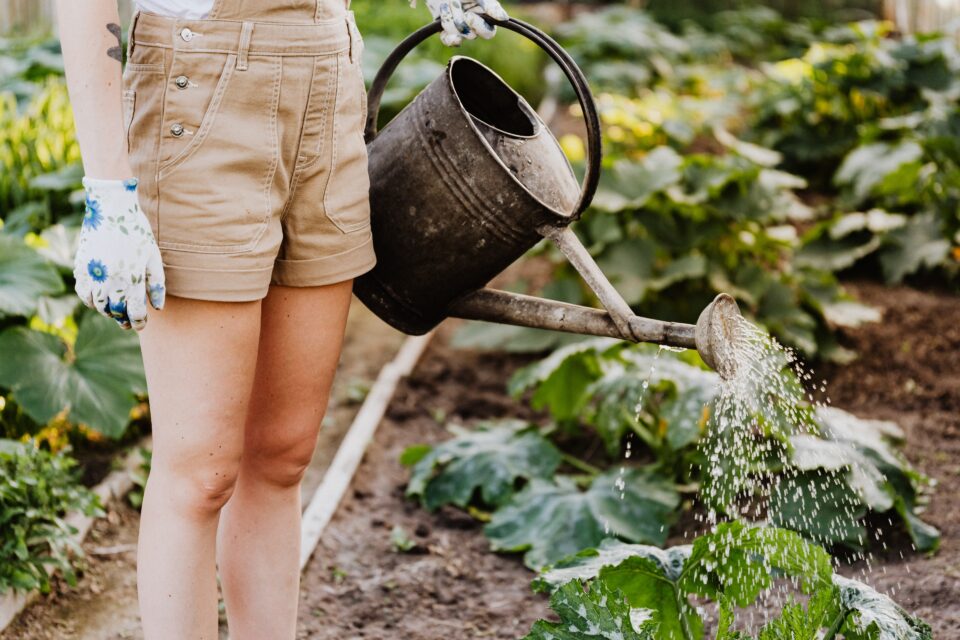Many people see organic gardening as a way to contribute to the safe-keeping of our beautiful planet. For others it presents the opportunity to put nutrient-rich and chemical-free food on the table. Both are laudible reasons. Whatever your reason is, you may find that these suggestions really help.
Keep your garden tools close at hand to make the most of your gardening time. Keep the tools in a big bucket, or store them in strong pockets in your pants. Make sure your trowel, pruning shears, gloves and other important tools are always handy. This will allow you to make easy work of your gardening up-keep!
Are you busy with your organic garden? Remember, before you replant your flowers or vegetables outside in cooler weather, you need to get them ready for the change in temperature and light! For a few weeks, move your plants to a colder spot with no light for a few hours. Gradually increase the amount of time you leave your plants in the cold. After a few weeks, your plants should be ready for the cooler outdoors.
You can save time by using soaker hoses. Instead of standing with a hose for a long time or having to refill a container, set your water pressure on low and let your hose sit next to the plant that needs to be watered. Do not forget to turn the water off later.
Tend to your garden a few steps at a time. A garden requires ongoing maintenance, and becomes a big time drain if you let things pile up until the weekend. Stop by the garden for a few minutes each day and deadhead some flowers while you’re waiting for dinner to cook or pull a few weeds while watching the kids play.
Marigold flowers are quite the powerhouse in an organic garden. As their flowers and leaves decay, the marigold releases chemicals that attract frogs, repel snakes and kill nematode pests that attack many vegetable plants, including tomatoes. Look for ways to let the bright yellow marigold bring brilliant color and decoration to your garden, as it goes to work to protect the health of your plants.
Take steps to protect earthworms in your organic garden. Till your soil minimally, as tilling can kill earthworms. The best tilling depth is 3 to 5 inches. Avoid using chemical fertilizers because they harm the micro-organisms in the soil, decreasing earthworm activity. Be sure that the soil never dries out too much, but at the same time avoid over-watering. By maintaining these soil conditions, you will notice your earthworm population increasing rapidly!
Water your plants during the morning to avoid having fungal growth that generally prefers moisture and darkness. By watering your plants during the day they are best able to take advantage of the sun, and utilize the suns anti-bacterial effects. Some bacteria or fungi are light sensitive, so by watering during the day you benefit the plant by reducing the growth potential of its competitors.
Collecting rainwater is the natural way to supply yourself with water for all your organic gardening needs. You can simply build your own system of rain barrels or buy them ready made. That way, you won’t have to pay for water for your garden or lawn maintenance. Caution is needed! Covers are suggested to cut down on mosquitoes and other pests that can be attracted to standing water.
Apply equal portions of dried plant material and green into your compost pile. Green plant material can include old flowers, fruit waste, grass clippings, vegetable waste, and leaves. The leaves you rake in the fall, straw, sawdust and the like are dry material. Don’t include ashes, diseased plants, charcoal meat, or carnivorous animal waste.
If you need to protect your plants in your organic garden from frost either early in the season or at the end of the season, here’s a great frugal way to cover them. Milk jugs, soda bottles and other plastic containers you can find around the house are perfect to protect your precious plants from the harsh frost.
If you have a problem with aphids, consider using ladybugs. Ladybugs are natural predators to aphids, and they are very effective in keeping the aphid population under control. You can buy them in bulk from a garden center or online. This is a much better solution than spraying your plants with pesticides.
Here is a tip for organic gardening! Use a rain gauge. Most plants require about an inch of water per week. To know how much you need to water, it is important to know how much water the plants received from rain. As rainfall can vary greatly within a city, don’t depend on your weather report; instead use a rain gauge to determine the amount that fell at your location.
When first growing a plant you should make sure that it has all the nutrition and water that it needs. The sprouting stage for most plants is the time when it is most vulnerable to drying out or dying. With proper care, a sprout will mature into a full adult plant which is much more resistant to environmental and animal threats.
The above list should have provided you with a some good ideas on becoming an even better organic gardener. It’s great that you have such an interest in the subject. Going organic is ‘green’; it is healthy, and it is enjoyable!
